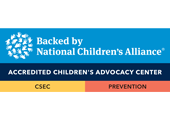Let’s Talk About Porn
November 16, 2021
The way that porn has evolved from the days of magazines tucked away in bedrooms to the internet is more damaging than you think. The reality of today is that pornography is far too common, free, and accessible as well as incredibly extreme, often filled with illegal and exploitative material. What used to be limited to adult book and video stores is now accessibly 24 hours a day by any device connected to the internet. The reality is that the porn industry is just a few clicks away from a child.
According to Quartz media, the online pornography industry is an estimated $15 billion industry, which makes it more profitable that Netflix ($11.7 billion), Hollywood ($11.1 billion) or Viacom ($13.3 billion). What is even more surprising is a survey from the American Psychology Association that reported the average age for a child’s exposure to online pornography is 13 years old.
A 2016 Barna study revealed that over two-thirds of 13-24-year-old males and one-third of 13-24-year-old females are viewing pornography at least monthly.”
A startling research article from 2016 identified that over 65% of 13-24-year-old males and nearly 35% of 13-24-year-old females were viewing pornography at least monthly. And, in that same study less than half of parents surveyed believed their children viewed pornography. Additionally, children under the age of 10 years old make up more than 20% of visitors to internet pornography websites.
The issue of exposure is massive, and the intentional act of showing a child pornography is sexual abuse by definition. As a Child Advocacy Center, we are concerned about the availability of porn increasing the risk of children being victimized in-person or online. However, it’s incredibly difficult to limit the exposure of children to an increasingly sexualized social media space, and the bombardment of teens of normalizing online exploitation of their own bodies.
Over the years, we have seen an increase in scary trends. “Sexting,” or sending sexually explicit text messages and images, has become a rapidly growing social norm for kids and teens. The rise of Sugardaddy and Sugarbaby websites are waiting for children the day they turn 18, and OnlyFans accounts and websites have an age verification system on par with a “click here.” Children are being inundated with social media personalities selling their images every day. Media plays a large role in reinforcing this behavior in children. The nuances of adult versus child exploitation are fading away.
At Children’s Cove, we hope to support parents and caregivers in normalizing some of these uncomfortable and too uncommon conversations. We need to talk about the one topic we haven’t brought up much: porn. “Why?” you may ask, especially when we have already discussed child sexual abuse material quite often, and the ways in which exploitation impacts children. You might think that porn is seemly something which may fall outside of our wheelhouse. Many moons ago that may have been the case, however, the trends and root causes of issues which do fall into our work brings porn closer to front and center than we would like it to be.
As the normalization of violent, extreme, and casual porn continues, or at the bare minimum self-exploitation of one’s own body being a non-issue, we will be witnessing increasing challenges of preventing younger and younger children from exposure.
But it doesn’t have to be like this.
Having conversations with children about what lurks on the internet is incredibly important. And talking about it in a factual way and being open to having conversations about what children may see accidentally is a necessary step of parenting in the increasingly digital world. Last year a documentary was released chronicling two parents from New Zealand who decided to learn about this issue, tackle it, and share it with other parents. A trailer to their feature film is linked here. And, the National Center on Sexual Exploitation has written a wonderful article about how to have conversations with children if you do find that they have been viewing porn, and how to approach it in a way to benefit your family.
We encourage all parents to #HaveTheConversation with their children early and often, about body safety and about online safety. To read some of our suggestions of how to be smart and safe online, visit that section on our parent’s page here.






